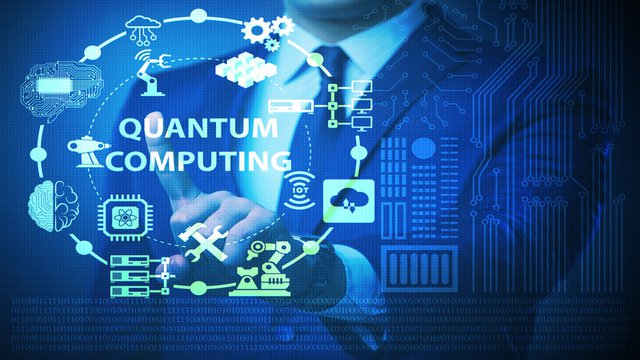
Quantum computing, a revolutionary field poised to transform the landscape of computation, has been garnering attention in recent years. For those seeking a deeper understanding beyond its enigmatic allure, this article aims to explain quantum computing in more detail, looking at how it began and has evolved, exploring its applications and use, and, if you are keen on launching a career in this sector, point you in the right direction of what you should study, such as a degree in Physics, to deepen your knowledge further.
In essence, quantum computing harnesses the principles of quantum mechanics to process and manipulate data. Traditional computers rely on bits, represented as either 0 or 1, forming the basis of all digital information. However, quantum computers leverage quantum bits or qubits, which, owing to the peculiarities of quantum mechanics, can exist in a superposition of states. This unique characteristic allows qubits to perform multiple computations simultaneously, exponentially increasing computing power.
The concept of quantum computing traces its roots back to the early 1980s when physicist Richard Feynman proposed the idea of simulating quantum systems using quantum computers. Over subsequent decades, researchers made strides in developing the necessary theoretical frameworks and hardware components to realise the potential of quantum computing.
Advancements in technology, including the construction of more stable qubits and the development of error-correcting codes, have been instrumental in propelling quantum computing forward. Companies like IBM, Google, and Microsoft, among others, have made significant investments in quantum research, fostering an environment conducive to innovation.
These applications showcase the potential of quantum computing across various fields by leveraging its unique computational capabilities to solve problems that classical computers struggle with due to their exponential computational power and ability to handle vast amounts of data simultaneously.
Embarking on a career in quantum computing demands a multidisciplinary skill set. A solid foundation in mathematics, particularly linear algebra and probability theory, forms the bedrock. Understanding quantum mechanics, including quantum states and operations, becomes imperative. Proficiency in computer science, algorithms, and programming languages like Python is also vital.
Pursuing a degree in physics, or a degree in computer engineering, equips individuals with the requisite knowledge – and at Universidad Europea, you will be gaining the latest insights from leading experts in their field. Additionally, with a focus on experiential learning, completing internships and work placements at leading organisations increases practical understanding.
Quantum computing, with its potential to revolutionise industries and solve complex problems, stands at the forefront of technological innovation. Its journey from theoretical concepts to tangible advancements marks a paradigm shift in computational capabilities. As enthusiasts delve deeper into this realm, a robust educational foundation such as the one offered at Universidad Europea, and a passion for innovation, will pave the way towards contributing to the exciting and dynamic field of quantum computing.